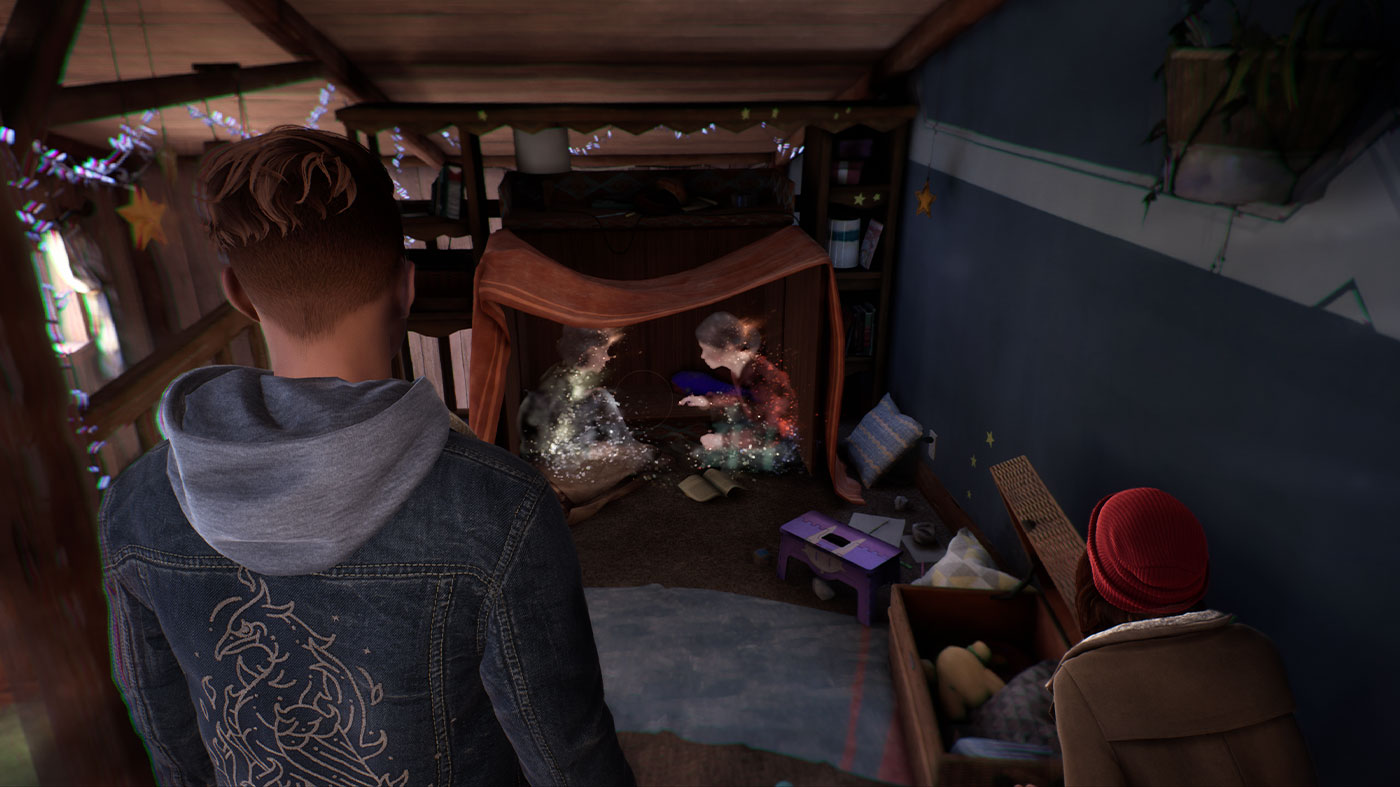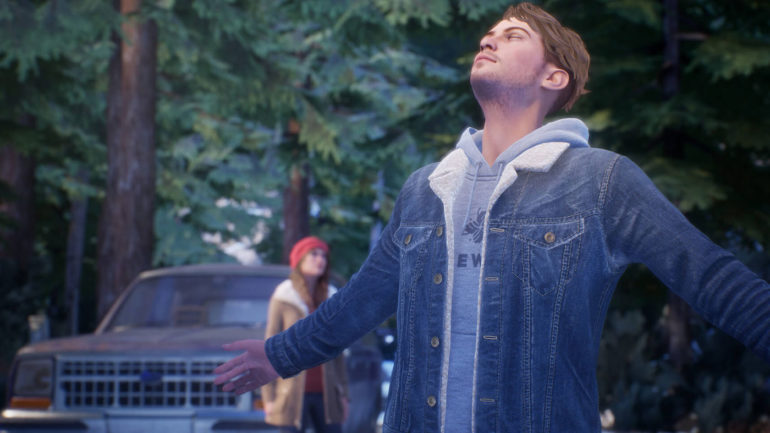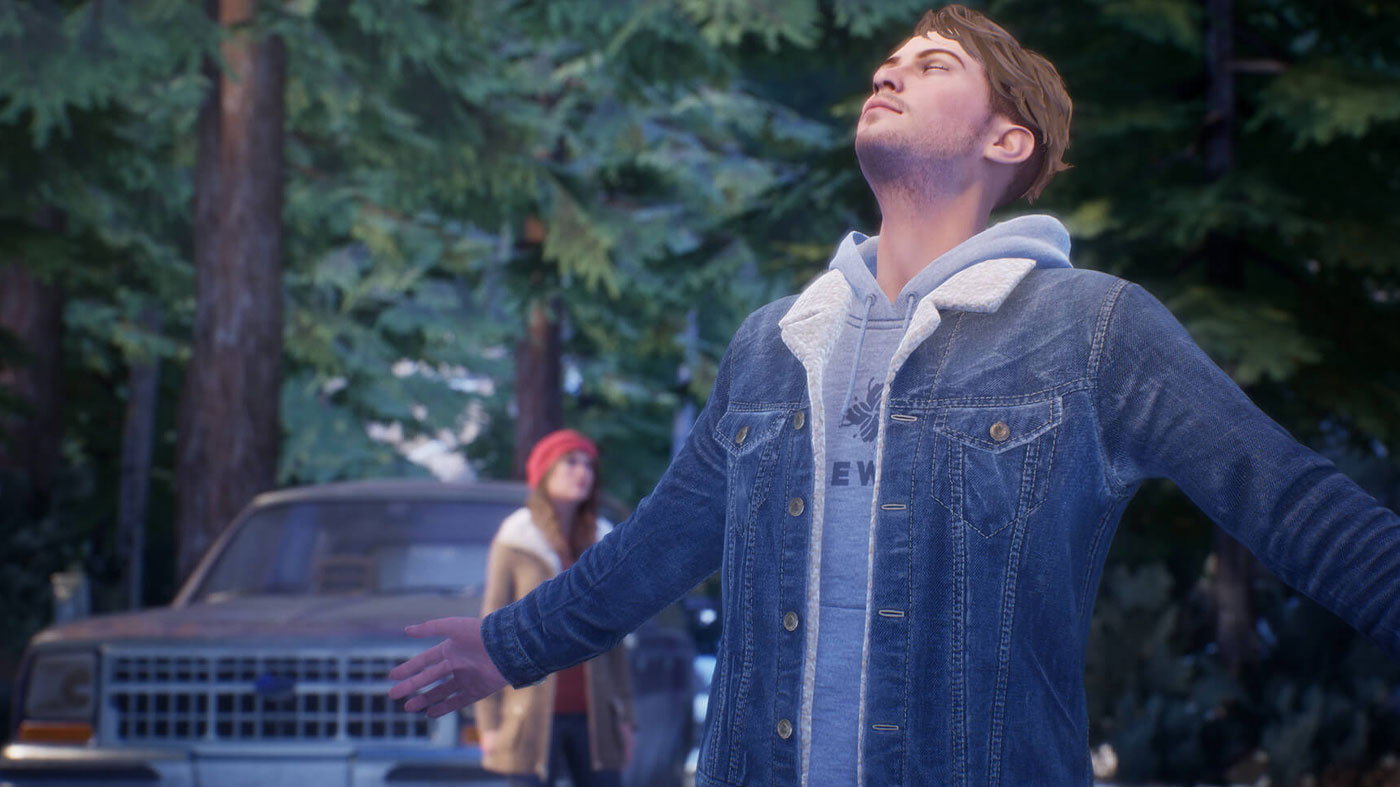Press Start may receive a commission when you buy from links on our site at no extra cost to you.
Dontnod thrives as a developer in almost antipodal defiance to Telltale’s fall from grace as a giant of narrative-heavy, episodic series because of one thing—their knack for reaching the heart of their themes. While one strained to turn Batman into a point-and-click adventure, the other explored the life in high school and the ‘small towns, small minds’ struggle that different kids go through. Tell Me Why, like Life is Strange before it, tackles its taboo of choice in a way that feels respectful and doesn’t place a laser focus on it, it simply is in Tell Me Why, another ride from a developer with their hands on the heartstrings.
Delos Crossing is another one of these fictional small towns with a small mind mentality, just like Life is Strange’s Arcadia Bay. Exiled to a reform school as a youth following the death of his mother, Tyler Ronan’s return as a transgender man is a more than welcome one for his estranged sister, Alyson. With the intention of selling their old family home and closing a chapter of their lives, the twins soon rediscover a ‘gift’ from their youth and begin to unravel the events that surrounded Mary-Ann’s death. The game has several twists and turns, not all of them work, though the game’s three-part arc concludes in a bittersweet way and has a lovely sense of finality and closure.
Although parts of Tyler’s identity act as the catalyst for Tell Me Why’s story, it never feels like a tokenistic shriek for attention. It’s ultimately a meditation on grief and how it acts as a malleable force on our memory and our ability to recall people once they’re no longer with us. That said, for someone like me who has little exposure to the transgender community, there’s a lot of educational value to be found in Tyler’s story and I do hope it rings true for people with similar life paths. I do think Dontnod deserve their dues for shining even a little bit of light on the topic.

The game builds some of its mechanics around the twins’ supernatural, shared ‘voice’ which allows them to speak using telepathy, including a separate dialogue tree that can be selected when the two are together, cross-examining the townsfolk of Delos Crossing. It’s a neat inner-deliberation that lets the pair plot, although it does little except serve the fact that they’re connected. The game presents this as a returning gift of theirs, so their casual acceptance of it can be excused, although the way Dontnod posits their ability to recall memories, an ability most humans have, courtesy of the hippocampus, as some kind of supernatural ability feels downright strange. Especially in the case of the Ronans, where, despite their gift, they each come across as an unreliable narrator, forcing the player to choose the ‘right’ canon and go down one of several divergent paths in the narrative. Although it does tie into the fickle nature of recollection, it does feel a bit clumsy.
When in these moments, Tell Me Why plays a bit like Fullbright’s Tacoma. It’s rather simplistic and helps the narrative along in each of the game’s two-hour episodes. There are a few fleeting moments per episode where, when you’re not walking around, examining items or talking to others, Tell Me Why dares to become a puzzle game. And through Mary-Ann’s ‘Book of Goblins’—a high-fantasy picture book she created for her children—the twins solve a series of riddles left behind by their mother in an attempt to better understand her, it’s compelling stuff that serves the mysticism behind the Ronan matriarch plus it injects a fanciful subplot into an otherwise heavy, grave game.

There’s a lot of tremendous world-building that has gone into realising not only the Ronan abode, overlooking a lake at the foot of a vivid Alaskan mountain range but the town of Delos Crossing at large. Inside the game’s first five minutes, I pored over every small detail of Alyson’s bedroom to find everything in that space told us a little bit about who she is, from her aspirations to her plans, to her deepest anxieties, Dontnod’s careful deliberation to make every examining action the player takes a meaningful one is almost peerless.
Like Life is Strange before it, Tell Me Why has a distinct visual identity and, though there are some very memorable scenes along the way, I feel like it’s the area in which this game is at its weakest. I do think Delos Crossing is a charming slice of wilderness that felt like an interactive recreation of Northern Exposure’s fictional Alaskan township, but everything else just looks a little dated, particularly when it comes to animation across the board. It’s stiff and most of the people our twin protagonists encounter are wooden, which is a shame for a game that has some exquisite environments. The sound design is also a bit of a mixed bag as performances visited both ends of the spectrum ranging from great to below par, though the game’s indie-rock soundtrack is exactly what the doctor ordered, I could almost picture Natalie Portman handing Zach Braff a headset.

There were a few instances where the performance would falter with texture pop-in acting as the main offender. There were moments during the game, including once in the epilogue, where the dialogue ceased entirely. Of course, with the game releasing week-by-week, I expect this will be long patched out by the time it’s released in full.
“Don’t let yourself be defined by the parts that’re broken”. It’s a quote that, out of context, won’t spoil anything though I think it speaks for the experience I had with Tell Me Why. For all of the parts that I didn’t like or that I felt were handled clumsily, there’s a lot of good intentions and even more soul that I think is going to resonate with players at the end of the journey. For anyone who valued their time in Arcadia Bay, there’s no reason to not pay a visit to Delos Crossing.




